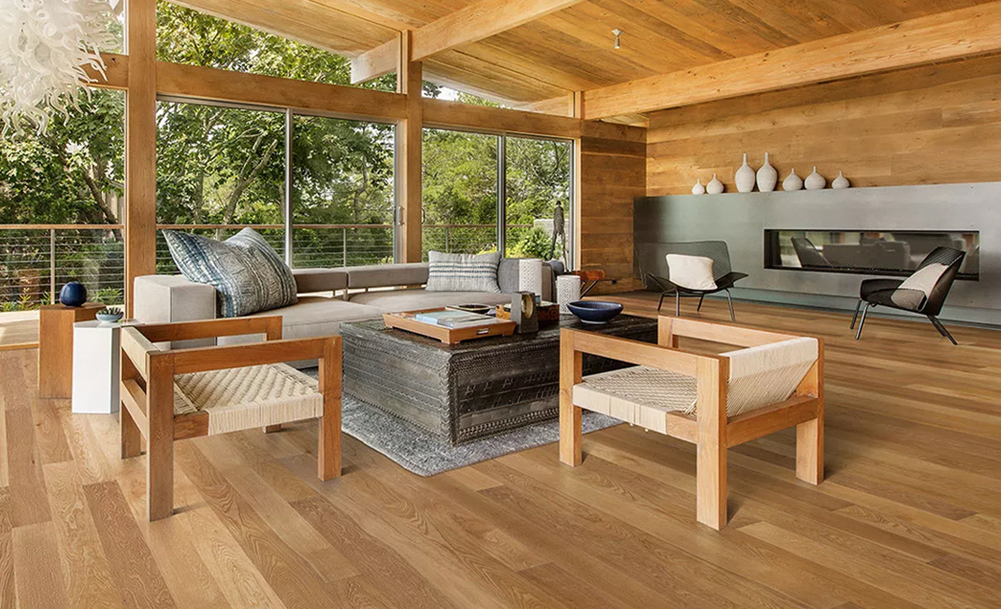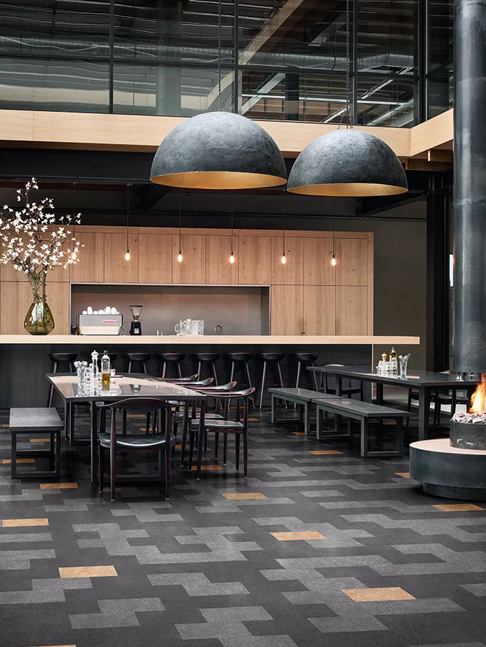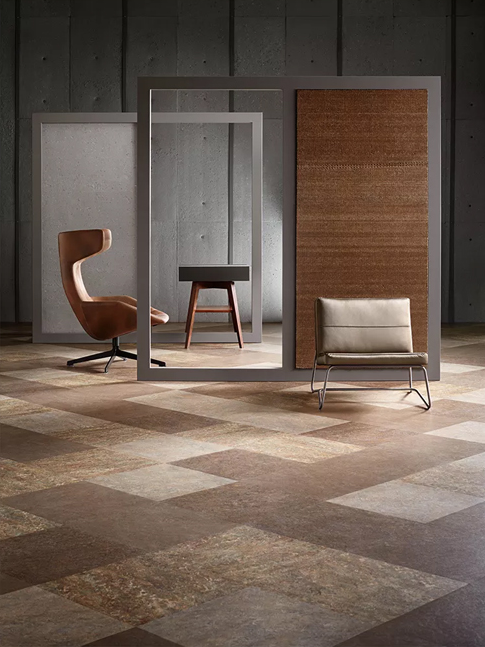|
|
Why Is Our Flooring Different?

by Green Building Supply's
Joel Hirshberg Green Building Supply is a company that carries only safe, sustainable and natural flooring products that meet or exceed California and European standards and are third-party certified. We've never carried unsustainable floors such as laminate or vinyl or LVT, nor do we carry products that contain urea formaldehyde or other known hazards. We only carry the best hardwood, bamboo, cork, natural linoleum, and wool carpet available.
Sustainable flooring was not something added to our product line because it became fashionable a few years ago. Since 1991 we have offered only non-toxic and sustainable flooring because that's who we are.

This Article Contains
Sustainability from the ground up
Why do sustainable products need to be certified?
The real litmus test
Shop Eco Friendly Flooring
Sustainability from the ground up
We offer sustainable flooring, not flooring with a few sustainable attributes. There's a big difference. We offer flooring that is designed from the ground up to be sustainable and eco-friendly. When sustainability is an add-on attribute, such as adding a bio-based component to a chemical-based product, or calling production scrap "recycled content," you only compromise cost and integrity.
We believe in and support products where sustainability has been integrated into every step of the process — from supply chain, through manufacturing, to installation, use and finally end of life.
These days, almost every flooring retailer sells some type of flooring that's green or sustainable, but look at what other types of flooring they sell and how long they have been selling it. They typically don't understand what they are selling and try to cross-sell less expensive, more profitable products. What's more, when asked why or how their products are sustainable, few can prove it, and fewer still know where the raw materials came from, how they were harvested and manufactured or what ingredients have been added to them.
Why do sustainable products need to be certified?
Information based on third-party certification with an approved, transparent, consensus standard provides credible information about how a product is made and its effect on the environment and social equity. It eliminates unlawful, harmful and widespread greenwashing.
Sustainable flooring requires not only social, environmental and economic responsibility, but also moral, health and political responsibility. Understanding and documenting all of these elements requires research — and that's where Green Building Supply comes in. At Green Building Supply we do the research for you to make sure our products fulfill all the requirements of a sustainable floor.
For example, we ensure that our Eco Friendly Flooring is free of toxic chemicals such as formaldehyde, VOCs or other ingredients that might compromise indoor air quality and your health.
But we don't stop there. We sort through the dozens of green labels to make sure they promote the highest values, and not just those of their clients (i.e. the manufacturers who pay for them). The best hardwood products, for example, are certified by Forest Stewardship Council (FSC), SMART, FloorScore, Eco-Management Audit Scheme (EMAS), Sustainable Forestry Initiative (SFI) and then third-party certified by Scientific Certification Systems (SCS) and other others that guarantee the flooring is harvested and manufactured using environmentally, economically and socially responsible practices.


The real litmus test
Although labeling and certifying has its place, in our opinion the real litmus test is direct experience over many years of use. Most of the organizations that provide labels don't actually use real world testing over time to see how they perform. Nor do they use real people, dogs or kids to test them for wear and tear. Labelers certainly don't have the time or money to do triple blind studies over 5-10 years to see how each and every product performs. Instead they use standardized testing methodologies that simulate wear and tear, and they rely on information provided by the manufacturer.
At Green Building Supply we are not scientists, nor do we use sophisticated equipment to test our products. Instead, we evaluate products as they are used in the real world over a long period of time — in our case that has been the past 2 + decades. A poor product will be a health problem for many people, will show up quickly and will be rejected. A good product, will perform as expected for almost everyone, will stand the test of time with dogs, kids and every type of catastrophe, and will not off-gas harmful chemicals even for those with extreme chemical sensitivities.
The manufacturers, whose products we have chosen, are established companies with successful track records that can be traced for many years, often decades; in some cases centuries. Also, they are companies that walk their environmental talk by voluntarily improving their own carbon footprints year after year. Many are from Europe and Canada such as Forbo, Kahrs, Nova Cork, Wicanders, Nature's Carpet; and others are from the US such as: Tesoro Woods (formerly EcoTimber), Teragren, US Floors and more.
Most of these companies have been making eco-friendly flooring long before green was popular. They tend to make their decisions based on internal indicators that include a significant number of environmental variables as opposed to using market indicators. For example, in 2009 both Kahrs and Tesoro Woods(formerly EcoTimber) independently decided not to manufacture exotic hardwoods from areas such as Brazil or Indonesia because they could no longer find reliable sources of sustainable products in those countries. There appeared to be too much corruption in those countries and the labels and certifications have been found to be exaggerated or plainly fraudulent. Therefore, they both temporarily terminated production of those products even though it had a negative impact on their sales.
The same has occurred in China as well. Many bamboo suppliers have discovered the hard way that what they were selling was not what they thought. Claims of sustainably-harvested products with no formaldehyde added turned out not to be true. Such false or exaggerated claims without third-party certification have given bamboo a bad reputation.
The same has been happening in the US with FSC certification. Some companies claim to sell FSC hardwoods, when, in fact, they may only have one or two models out of an entire line of 36 that are actually certified by FSC. Unfortunately, it's always up to the consumer to somehow figure out all this sustainable lingo and make an intelligent buying decision. Caveat emptor, let the buyer beware.
Explore our healthy flooring options
|
|
|
|